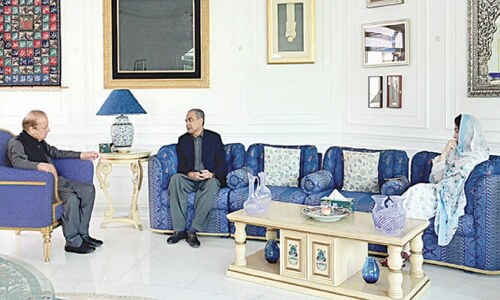IT is not often the Afghan Taliban claim a major scalp on the terrorism landscape, considering they are seen as giving sanctuary to a number of violent extremist groups on their soil. But in the case of Sanaullah Ghafari, emir of the Islamic State’s Khorasan chapter, they got it right.
One of the most wanted terrorists internationally, Ghafari was reportedly killed in an operation by Taliban security forces, though some news reports claim he was executed in Kabul. The significance of this development can be gauged by the $10m reward the US State Department had offered for information about Ghafari’s whereabouts.
Pakistan too has reason to be pleased; last December, IS-K had carried out an attack on its embassy in Kabul to directly target the country’s envoy. The 14th report of the UN’s Analytical Support and Sanctions Monitoring Team dilates at some length about Ghafari, who was then alive, describing him as “the most ambitious leader of the affiliate”. Ghafari, it says, was different from other IS-K leaders in that he was well-educated and had recruited more educated individuals into the organisation and even extended recruitment to non-Salafists.
For Pakistan, however, the main source of concern is the TTP which has an estimated 4,000 to 6,000 fighters inside Afghanistan. Since it announced an end to the ceasefire with Pakistan, the TTP has carried out more than 100 attacks in this country.
But despite the Pakistan government making its displeasure known, to the extent of the defence minister warning of strikes on terrorist hideouts inside Afghanistan, the Afghan Taliban have yet to take coercive measures against the group.
Repeated admonishment from world capitals about the Kabul regime reneging on the counterterrorism measures it had pledged in the Doha talks has fallen on deaf ears. The UN report notes: “The Taliban [do] not consider TTP a threat to Afghanistan, but rather as part of the emirate.”
The Taliban’s main rival in Afghanistan is IS-K, which has carried out some high-profile attacks on international and domestic targets in the country. In the current climate, especially with key decisions increasingly being taken by the ultra-conservative, isolationist Taliban leadership in Kandahar, it appears unlikely the TTP in Afghanistan will be restrained in any significant manner.
Pakistan’s folly in not recognising how the Afghan Taliban’s ideological affinity with the TTP would play out will continue to haunt us.
Published in Dawn, June 12th, 2023













































